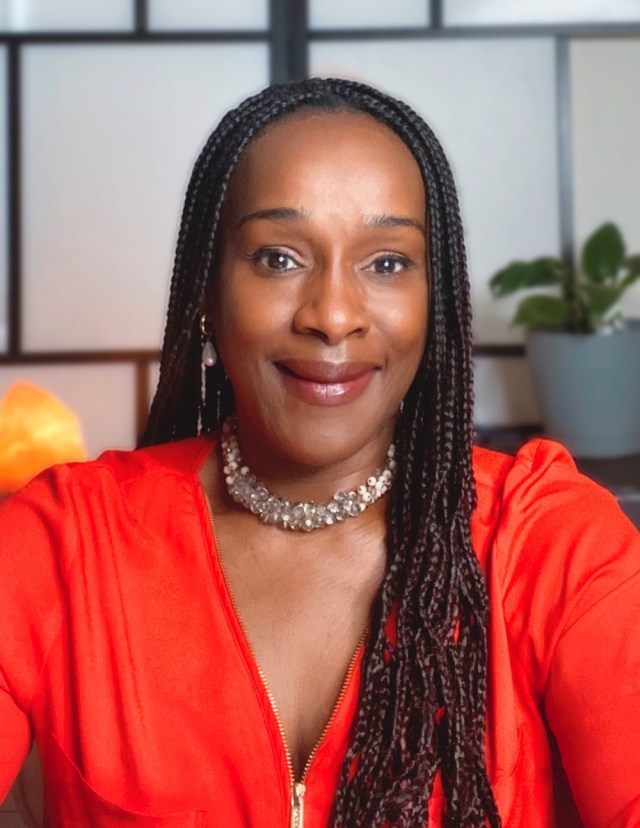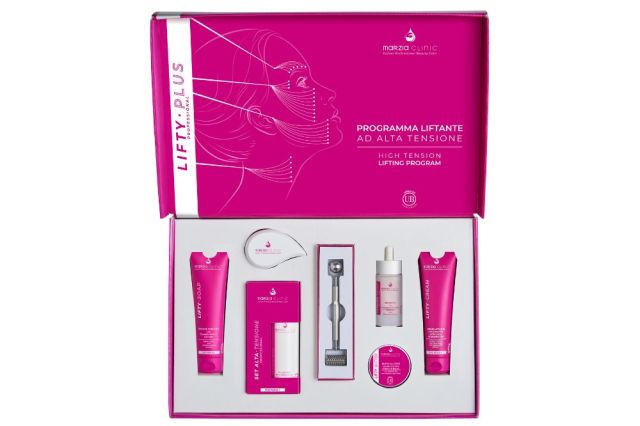What is menopause?
According to Chiza Westcarr – menopause coach, nutritional medicine practitioner and dermal clinician – women typically experience menopause anywhere between the ages of 45 to 55 years-old, averaging at 51. “Menopause is the cessation of ovarian follicular function. Menopause is much more than the loss of ovarian function; there are changes to every body system,” Chiza explains. “Granted, the ovaries produce the three sex hormones – oestrogen (or estrogen), progesterone and testosterone, but a fact that is not well known is that the brain does, too.”
While a decline in all hormones have an effect on the body, Chiza refers to a decline in oestrogen as a key driver in many of the symptoms commonly associated with menopause. Such symptoms include “low mood, poor concentration, brain fog, hot flushes, night sweats, lines, wrinkles, weight gain, osteoporosis, changes to the gut microbiome, increased cardiovascular disease and type 2 diabetes”. Chiza also refers to the taboo topic of vaginal issues that can arise during menopause, defined as the genitourinary syndrome of menopause (or GSM). “GSM is a cluster of symptoms that include the drying out and thinning of the vaginal tissue, recurring urinary tract infections, and prolapse of the vagina, bladder and rectum.”

Chiza recommends a holistic approach to managing the diverse symptoms of menopause:
- “Adopting whole foods nutrition and eliminating processed, simple carbohydrate-based foods, sugar and alcohol
- Practicing exercise is a must in order to build muscle which will reverse insulin resistance, improve bone health and balance
- Seeking management for stress
- Optimising sleep. Adequate sleep is so important for overall health and improves immune function, mental health, weight gain and so much more
- Investigating hormone optimisation via menopausal hormone therapy (MHT). This involves literally topping up the hormones the body has become deficient in, especially oestrogen*.”
Hormone changes and the skin
Where measures can be taken to improve outcomes for menopausal women internally, many symptoms can also show in the skin as signs of aging. Kassi Bristow is a Sales and Training Manager at Professional Salon Brands. The Australian distributor works with Donna+ Face – a skincare brand with a distinct focus on producing products suited to clients experiencing symptoms of menopause. Kassi explains that as a result of hormone fluctuations, the skin is more prone to dehydration, sensitivity, dullness, dark spots, sagging, wrinkles, thinning, and a decrease in elasticity.
The Donna+ Face range features 15 retail and 7 professional products. In-salon, skin therapists perform the brand’s signature LIFTY PLUS treatment, designed to “prolong cellular vivacity, giving the skin a firm, tight, and incredibly bright look,” Kassi shares. Products utilise touted ingredients including collagen, retinol, ceramides, plant butters and oils and – distinctively – phytoestrogens. As its name suggests, phytoestrogens “mimic the action of estrogens naturally produced by the body”. Ingredients are penetrated through the practice of hormesis (adaptive stress) massage.
In conjunction with topical remedies, non-surgical, high tension threads containing hyaluronic acid and 8% pure sericin fibers (often used in medicine for wound suturing) are placed onto the skin. According to the brand, the “state-of-the-art” protein threads are “able to penetrate the dermis, stimulating fibroblasts to generate new collagen and reorganise elastic fibers, providing tone and an immediate lifting effect.”
Education on menopause
Despite advances in research on the subject, Chiza argues that a “glaring gap” remains in knowledge and understanding of what menopause truly looks like from woman-to-woman. She also reminds us that menopause runs in transitional stages, each with their unique signs and symptoms. “The lack of readily available information on the changes that occur means that very often as an industry, we do not initiate conversations with our patients/clients that would help us connect and offer reassurance where needed because many of us do not know how to.”
For beauty and aesthetic professionals, undertaking education on how to recognise and treat the symptoms of menopause could be set to benefit business. Hosting in-salon and retail offerings such as those offered by Donna+ Face speak to the unique concerns of clients whose skin concerns can be otherwise harder to diagnose and treat.

“We have the time to listen, which unfortunately many doctors do not. I see it as the perfect opportunity to not only listen empathetically but also to be able to refer [clients] to the Australasian Menopause Society (AMS) website to book a consultation with a menopause specialist to provide guidance, or to other menopause-related organisations,” Chiza adds.
“Speaking from personal experience, there is nothing more reassuring than having a practitioner understand what you are going through as a menopausal woman. I want us to create a referral network to be able to better serve and support our clients. Together, I want us to make a tangible difference to their quality of life.”
* “Not everyone is a candidate for MHT so finding a menopause specialist is important. I refer all my clients to the AMS where they can put their postcode in and find someone local. The number of women whose symptoms are dismissed by a well meaning GP who does not have the requisite knowledge is not acceptable.” – Chiza Westcarr.
Chiza Westcarr will host The Thriving Through Menopause Symposium – an intimate boutique-style conference tailored to industry professionals. The one-day event is set to offer invaluable insights from menopause specialists, dispelling myths and expanding our collective knowledge base. The event will run on Monday February 24 2025 out of The State Library of NSW in Sydney. Follow on Instagram for updates on ticket sales.
And to learn more on the Donna+ Face range and LIFTY PLUS treatment, contact Professional Salon Brands on 07 5564 6720.
Read the current issue of our digital magazine here:
- For more news and updates, subscribe to our weekly newsletter
- Follow us on Instagram
- Like us on Facebook
- Join Australia’s largest network of beauty industry professionals on LinkedIn
- Subscribe to our print magazine
Have an idea for a story or want to see a topic covered on our site and in our pages? Get in touch at info@professionalbeauty.com.au.

